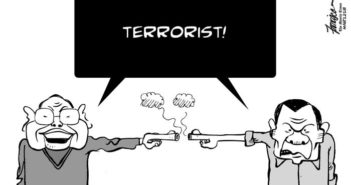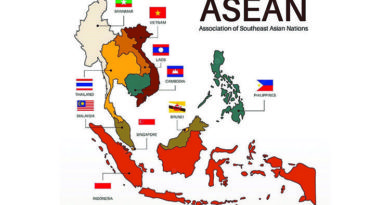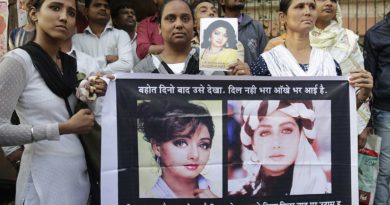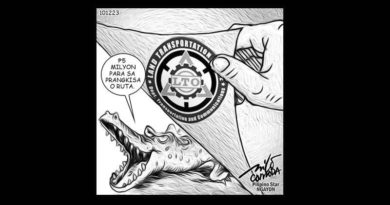OP-ED EDITORIAL: OPINION & CARTOON – ‘WORD WAR II – In this word war, it’s a question of persuasion, not quantity of insults – By The Manila Times– Monday, March 12, 2018
In this word war, it’s a question of persuasion, not quantity of insults
EDITORIAL
With his tendency to use foul language and engage in gutter talk against public figures, President Rodrigo Duterte has placed himself on the global stage as a figure with a target on his back. He was, in our estimate, in the crosshairs of important world personalities and many groups that took umbrage at the insults he directed at them.
It was just matter of time for one or several of them to fire back and hit home.
Now, it has happened. The big surprise is that it’s not the President of another country who has taken the shot, but a bureaucrat at the United Nations.
Addressing envoys at the UN Human Rights Council (UNHRC) in Geneva on Friday, UN Human Rights High Commissioner Zeid bin Zeid Al-Hussein, a Jordanian prince, took issue with reports about President Duterte cursing and threatening to slap Agnes Callamard, UN special rapporteur on extrajudicial, summary or arbitrary executions.
He also took exception over another incident wherein Duterte described Callamard as ”undernourished,” and ICC prosecutor Fatou Bensouda as “black” – descriptions that women and rights groups found derogatory and uncalled for.
Zeid told reporters: “This is absolutely disgraceful that the President of a country could speak in this way, using the foulest of language against a rapporteur that is highly respected.”
He then unleashed his own bomb. He suggested that Duterte take a psychiatric examination. He questioned his mental fitness.
Zeid warned about the worsening repression in the Philippines, arising from Duterte’s “authoritarian” style. He has made the human rights situation in the Philippines a key item in his annual report, which he released on Wednesday at the UNHRC.
Zeid’s remarks predictably hit home in Manila and Malacanang. Opponents and critics of the President have seized his words as emblematic of a new seriousness in international concern about the Philippines.
Philippine Foreign Affairs Secretary Alan Peter Cayetano and presidential spokesman Harry Roque have come out swinging against commissioner Zeid. They have tried to fire more words than Zeid, as if the quantity of words would make a difference in the word war.
Spokesman Harry Roque said the UN High Commissioner’s language was not just an insult to the Philippines and the Filipino people but to all countries that have democratically elected their heads of state.
At the Department of Foreign Affairs (DFA), Cayetano took exception to the “irresponsible and disrespectful” comments of the UN official against the President.
“This action of High Commissioner Zeid Ra’ad Al-Hussein is completely uncalled for and demeans not only the head of state of a member-state, but tarnishes the reputation of the Office of the High Commissioner,” Cayetano said.
Cayetano went farther and declared: “The world actually needs more Dutertes — leaders with empathy; leaders who listen to their people and; are ready to sacrifice their lives to protect their people,”
Before more words are fired by both sides, and before more lethal weapons are employed, we are moved to issue this bit of counsel to all the combatants: In this word war, it’s not a question of who will say the most insulting or offensive words; it is usually a question of who is more persuasive and believable.
But then again, as mentioned in Part I of this editorial, it would be best for the two sides to start seeking points of compromise in a meaningful dialogue and cooperation on the country’s human rights situation, and stop hurling insults against each other.
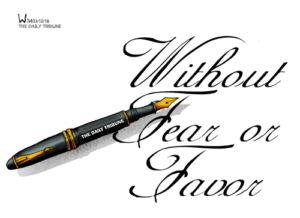
7.2 Awaiting the entry of new telecom firm – The Manila Bulletin
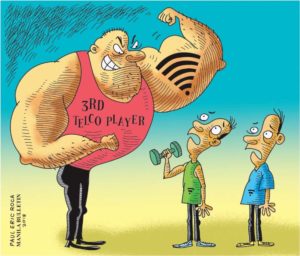
7.3. Too good a job – The Manila Standard
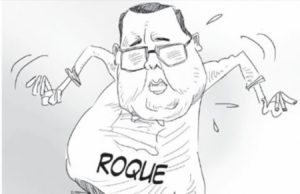
7.4. TERRORIST! – The Manila Times
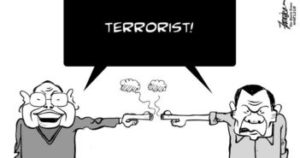
7.5. Big boost for tourism – The Philippine Daily Inquirer
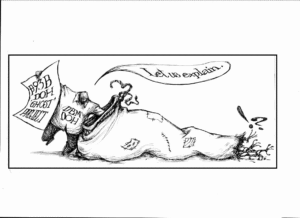
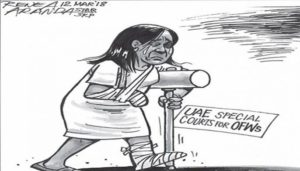
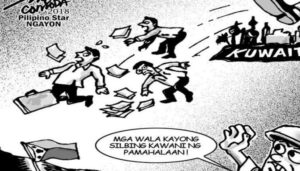

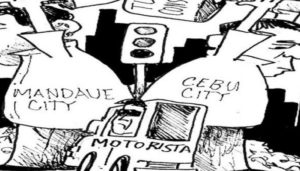
8.1. Failure is not the only risk in Trump-Kim summit – – For The Straits Times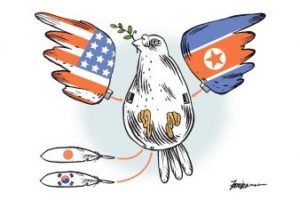

Jonathan Eyal – Europe Correspondent
Jonathan Eyal was born in Romania, but has lived most of his life in Britain. Educated at Oxford and London universities, his initial training was in international law and relations, in which he obtained both his first degree and his Master’s with a Distinction. His doctorate, completed at Oxford in 1987, analysed relations between ethnic minorities in Eastern Europe. After teaching at Oxford for three years, Dr Eyal was appointed a researcher at the Royal United Services Institute for Defence Studies in London. Since 1990, Dr Eyal has been Director of Studies at the Institute. Dr Eyal has authored books on military relations in the Balkans and Eastern Europe, and became a regular commentator for The Guardian newspaper in London. He started writing for The Straits Times in 2001, and is currently the paper’s Europe Correspondent. He is fluent in French, Romanian, Italian, Hungarian and German.
..
VEERA PRATEEPCHAIKUL FORMER EDITOR
– The Bangkok Post
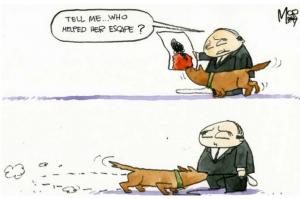
 NOTE : All photographs, news, editorials, opinions, information, data, others have been taken from the Internet ..aseanews.net | [email protected] |
NOTE : All photographs, news, editorials, opinions, information, data, others have been taken from the Internet ..aseanews.net | [email protected] |.For comments, Email to :
D’Equalizer | [email protected] | Contributor.


